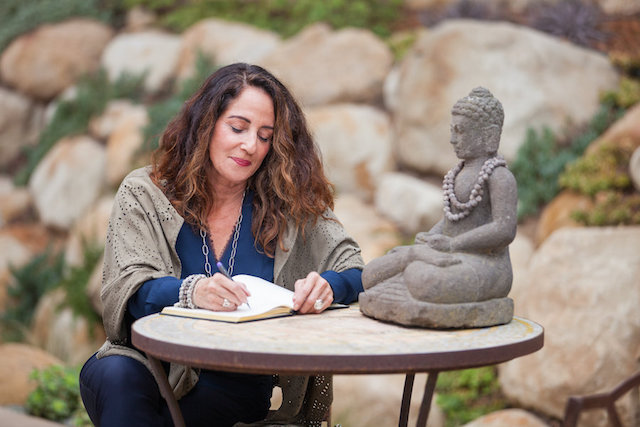
When I was 10 years old, my mother gave me a journal to help me cope with my grandmother’s suicide.
Since then, I’ve used writing as a way of healing and a path to bliss. Bliss is defined as the natural direction we take to maximize a sense of joy and fulfillment in our lives.
Bliss is more powerful than simple happiness and is sometimes equated with being in a state of euphoria. The truth is, achieving bliss is about tapping into all those things, people, and activities that bring out the best in us. Once we open our eyes and become aware of our bliss, the universe sends amazing opportunities our way.
When contemplating bliss, it’s important to think about those times when we feel the most joy. For me, it’s when I’m alone writing, and then again when I have the opportunity to share my writing. And, I often feel blissful when I’m learning, which is one reason why I returned to school for two advanced degrees during middle age.
Mythologist and writer Joseph Campbell coined the phrase, “Follow your bliss,” which is another way of saying we should follow our heart and listen to our authentic inner voice. Finding this voice may occur during regular writing practice—whether it’s journaling, writing a poem or blog, or working on a novel or play.
When we find our authentic voice when writing, we know it—it feels as if the words are flowing, and everything feels right. When we write in the way we speak, then chances are we’re writing with our authentic voice. And, when we read the works of others who write in their authentic voice, we are more able to relate to what they’re saying, as their words truly resonate with us.
When I was in graduate school studying nonfiction writing, one of my mentors suggested that when writing, I should imagine that I’m sitting across the table from my best friend. This is one way to tap into our authentic voice because it involves a personal and intimate form of expression. Doing this helps me tap into my most personal feelings.
Another way to feel bliss through writing is that while editing my work, I read it out loud because this also helps identify authentic voice. When we’re in tune with this inner voice, we have a better chance of tapping into our intuition, which can help us become more alert to messages from the universe, which ultimately lead to bliss.
Some creative individuals—such as authors, poets, musicians, and healers—are very much in touch with their intuition and authentic inner voice. Gandhi admitted that he heard an inner voice that shared this message with him: “You are on the right track; move neither to the left nor the right, but keep to the straight and narrow.”
Sometimes it takes a while to find our authentic voice, so it helps to be confident about the subject we’re writing about. When writing about something personal, I find that in the beginning there’s a lot of “throat-clearing,” of unimportant “stuff” which needs to get released before important information comes out. When the important information is released, that’s when feelings of bliss ensue.
For example, when sitting down to write, we might begin rambling about one subject, but the trajectory of our writing ends up somewhere else. This process is perfectly fine and actually can be productive. At times, what really needs to be said appears on the third page, not the first. I call those initial pages the “throat-clearing” ones.
Writing with our authentic voice means that our thoughts and feelings come from the body, not from the mind, which is called “embodied writing.” While engaged in this type of expression, we become more involved in our own story because we feel the emotions of a particular experience within our very being. However, sometimes the actual event or situation is not as important as how we’ve reacted to it or dealt with it. When we engage in embodied writing, we often find that we reap the rewards of a happy and blissful creative journey.
Other ways to tap into our authentic voice include: being surrounded by favorite objects, writing when feeling anger or some other powerful emotion, humming as we write, and writing with our nondominant hand. When writing about loved ones, it’s helpful to hold one of their possessions or to spray a fragrance they wear (or wore) in the room where we’re working.
Some writers feel that they’re simply compelled to write, as it makes them feel better when they share their stories with others. When I don’t write, I feel as if something’s missing from my life, because writing that leads to healing and a more profound way of understanding myself and others inevitably leads to bliss.
~
~
~
Author: Diana Raab, Ph.D
Image: Author’s Own
Editor: Travis May








Read 0 comments and reply